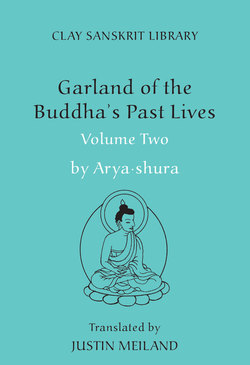Читать книгу Garland of the Buddha's Past Lives (Volume 2) - Aryashura - Страница 26
На сайте Литреса книга снята с продажи.
Оглавлениеpeople and practice a virtue based on compassion and non-violence, protecting his society and sacrificing himself for his subjects.
Although narratives such as “The Birth-Story of Ayo·griha’ (32) extol asceticism over the householder life, the ascetic life is not viewed as a necessary path for all. The king acts as a moral exemplar for society and is urged, as a layman, to support ascetics and brahmins with gifts (25.50 [29], 28.83 [49]). Nevertheless, the values that form the basis of proper kingship are essentially renunciate virtues based on non-desire and non-violence. As such, they fundamentally grate against conventional notions of kingship which focus on the pursuit of profit (artha) and on the acquisition and consolidation of power through violence.22 In contrast to the Machiavellian type of king who follows the pragmatic teachings of the Arthasastra, the ideal Buddhist king should eschew politics and military power in favor of virtue:23
Neither power, treasury nor good policy
can bring a king to the same position
as he can reach through the path of virtue,
however great his effort or expenses. (22.151 [94])
The reader may well ask whether such an ideal is really possible. Can a king really give up violence and be a paradigm of compassion if he is to maintain power? One way of tackling this matter is to take an alternative approach from simply reading the text in terms of providing straight-forward didactic messages. As Steven Collins has argued (1998: 414ff), the tension between the ideal and the actual is inherent in the very nature of a renunciate ideology, ________
